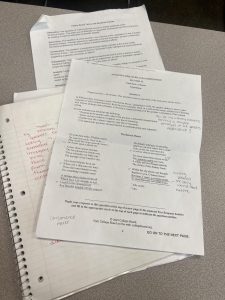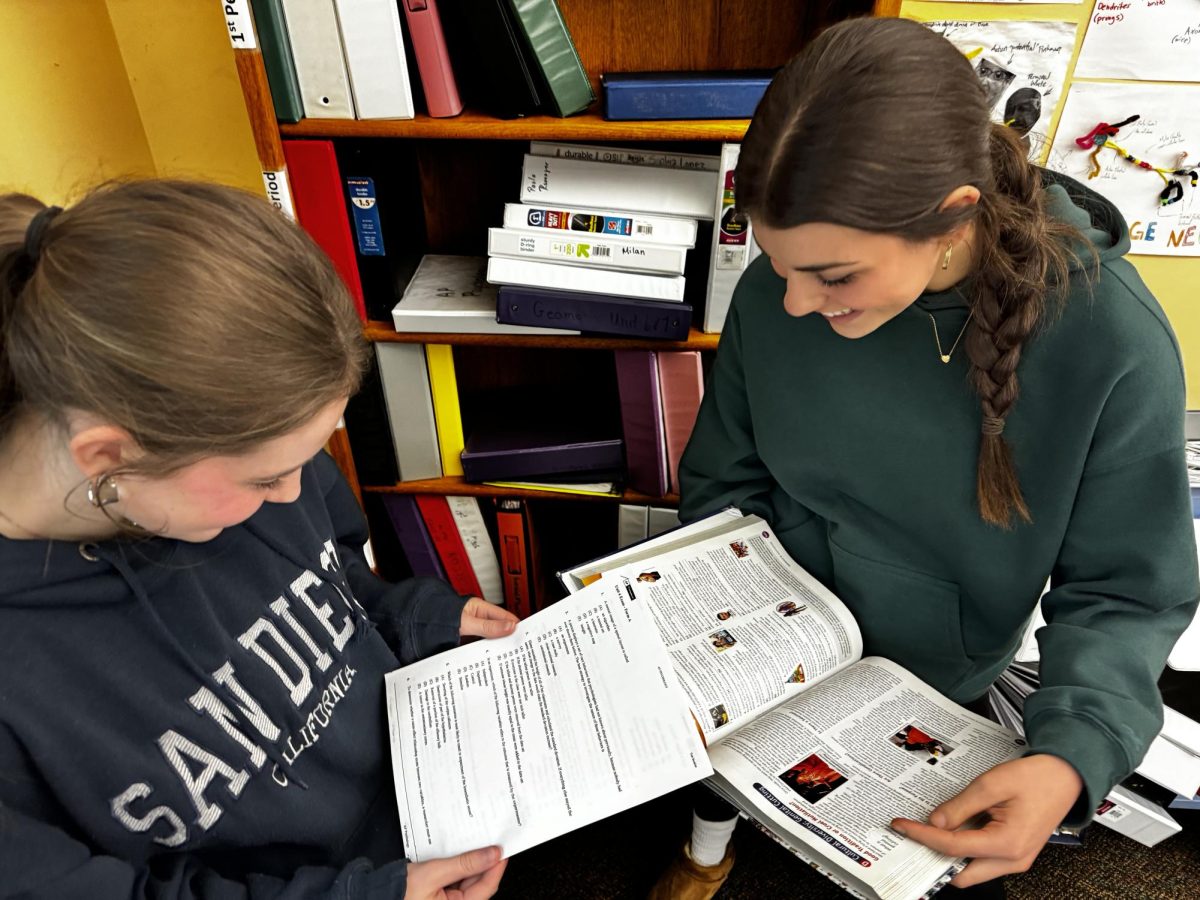The New York Times recently published an article addressing the controversy of AP (Advanced Placement) classes and College Board’s involvement with high school students. According to Dana Goldstein, a New York Times writer, the College Board has tried to “bolster” Advanced Placement by growing the number of students taking AP courses.
Indeed, AP classes are popular among the Wilsonville student body. The familiar non-profit organization, College Board, continues to draw students at younger ages with new, innovative courses. This effort demonstrates the Board’s ever-progressive obligation to pitch AP to young students as they approach early high school careers. These outward efforts in recruiting students poses a question of why College Board pushes AP so heavily?
At Wilsonville High School, a poll revealed that 83 students, out of 128 who responded, have taken A.P. classes. That’s 65% of students polled. AP offers classes in a variety of subjects. Sophomore Mandy Russell delineates, “People I’ve talked to about A.P. classes have said that they will challenge you and they are hard, but most of the time it’s worth it because it helps you with an extra boost on your grade.”
Many other students agree with this statement and claim to enjoy the impact that AP classes have in the weighted factor on their grades. Grady Weise, another sophomore at WHS, adds that, “[Teachers] suggest that students should take AP classes,” despite the fact that it can be challenging to find enough teachers to cover AP classes. Not all teachers want to teach or are qualified to teach AP. No doubt, AP classes entice students with a potential benefit of weighted GPAs, but for the College Board, are these courses about education or profit?
As previously mentioned, College Board is a not-for-profit organization, meaning it is not outwardly in the business of making payouts to members, directors, stake-holders, or officers. Some critics feel like the College Board stretches the definition of a nonprofit (Los Angeles Times) as its CEO currently makes over $2.5 million per year. From a statistical standpoint, A.P. maintains its position as the most lucrative branch of the College Board.
So how do the dollars break down? Every participating student pays a baseline fee of $95 to receive a testing booklet, despite the fact that 40% of participants don’t pass the exams. “This year, taxpayers paid the nonprofit at least $90 million for AP tests that many students failed,” New York Times writer Dana Goldstein articulates in the article “Why is the College Board Pushing to Expand Advanced Placement?”
Despite College Board’s focus on equity and outreach to every student, the assumption that success is inevitable is often contradicted by test results in spring. Students who partake in AP but score below a 3-4 on the test scale don’t reap many benefits. Students like Weise and Russell may feel disappointed if they don’t meet the end-of-year test score, preventing them from earning college credits.
In a hypothetical scenario, a student passes 3 of 5 AP classes throughout their high school experience. As a result, they could enter a University with a jumpstart by already having earned a few required credits. A student who earns these credits pre-college can end up saving money by taking year-long college classes at a fraction of the cost, while still in high school. Not only does it save these students money, but gives them more opportunities to fill college schedules with higher-interest classes.
Although AP can be tricky to navigate, the goal of the College Board and these AP courses is to allow students to reach their full potential academically.
Russell emphasizes this point by sharing, “I think students forecast for AP classes even though they’re tougher for that exact reason; they want a class that is harder than the rest.”
A similar opinion comes from sophomore Layla Sidhu who says, “I want to take AP classes because they would hold me to a higher standard. I think that everyone should be able to try out an AP class because it is important to learn how to work through challenging content before college.” The College Board reiterates this priority of providing rigor and demanding critical thinking, both of which are intentionally implemented throughout their programs.
AP classes may not be a fit for everyone, but they certainly engage a hearty amount of WVHS students taking their courses. These classes push students with critical thinking projects, high-level objectives, Socratic conversations, and testing protocols that can carry students into adulthood with valuable skill sets and knowledge.





